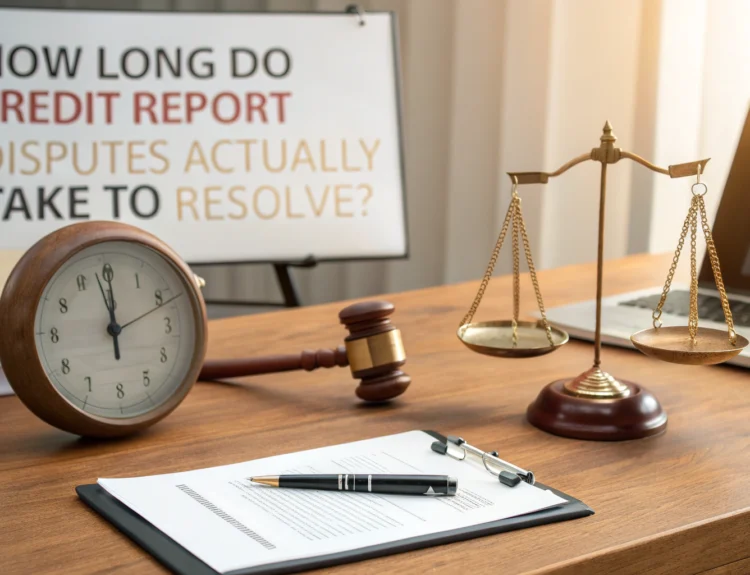The intricacies involved in personal injury claims often necessitate the professional assistance of a legal expert. These claims, which can be instigated due to a wide range of incidents from vehicular accidents to medical malpractice, carry with them a need for thorough understanding of legal protocols, evidence collection, and negotiation tactics. A personal injury lawyer’s role cannot be understated – they are instrumental in advocating for the client’s rights, managing the extensive paperwork, and utilizing their expertise to secure the maximum possible compensation. Yet, are we fully aware of what these complex legal processes entail?
Contents
Understanding Personal Injury Claims
When an unfortunate event takes a toll on your life, understanding personal injury claims can make all the difference. Knowledge is power, and in such cases, it enables you to seek the justice you deserve. Personal injury claims encompass a wide range of injury types, including but not limited to, vehicular accidents, medical malpractice, workplace injuries, slips, and falls. Each type carries unique legal nuances, requiring specialized understanding for the most effective claim.
The compensation timeline for personal injury claims varies, usually taking between several months to years. It’s influenced by factors such as the severity of injuries, the clarity of liability, and the willingness of parties to settle. Understanding this timeline is vital as it helps set realistic expectations and prepares you for the journey ahead.
Personal injury claims might seem overwhelming, but with the right knowledge, it’s a path toward rightful compensation. It’s important to comprehend the different injury types and the compensation timeline. This understanding equips you with the necessary information to navigate the complex world of personal injury law and seek the justice you deserve. You can consult an experienced personal injury lawyer in Boston (or elsewhere) to receive personalized guidance, better understand your legal options, and improve your chances of securing the compensation you deserve.
Evaluating Your Injury Case
Evaluating the validity of your injury case is an essential step in the pursuit of justice. This process involves a robust evidence collection, which may encompass witness statements and accident reconstruction. These elements are important in the liability determination phase, where it’s decided who is legally responsible for the incident.
Medical documentation also plays a significant role in the evaluation of your case. It provides an in-depth understanding of the physical injuries sustained, the treatment provided, and potential future expenses related to the injury. The emotional impact of the incident should not be overlooked, as it can considerably affect the quality of your life and therefore, plays a key role in the evaluation.
Understanding the doctrine of comparative negligence, where your own conduct may have contributed to the accident, is essential in evaluating your case. It’s also important to be aware of legal deadlines, as there are specific time limits within which you must file your claim.
A thorough case evaluation, preferably with the assistance of an experienced attorney, is crucial to determine the strength of your claim and the best way forward in seeking compensation.
Factors Influencing Compensation Amount
Several key factors can greatly influence the compensation amount in a personal injury claim. The negligence factors play a significant role in the liability determination. If the party at fault was grossly negligent, the compensation amount may increase considerably.
Medical expenses are another important factor. These costs include not just the immediate treatment but also future medical expenses related to the injury. The severity of the injury often dictates these expenses. A severe or permanent disability can result in higher compensation due to increased medical costs and a substantial impact on future earnings.
Emotional distress is also taken into account. This component acknowledges the psychological impact of an accident, which can be as debilitating as physical injuries. Lost wages, both past and future, are also taken into account in the compensation equation.
The presence of pre-existing conditions can influence the compensation downwards, especially if these conditions have contributed to the severity of the accident-related injuries. Finally, the concept of comparative fault, where the claimant’s own contribution to the accident is evaluated, can also affect the compensation amount. The more fault attributed to the claimant, the lower the compensation. As a result, it’s important to take these factors into account while seeking compensation in personal injury claims.
The Role of Personal Injury Lawyers
Steering through the complex terrain of personal injury claims can be an intimidating task for the uninitiated, which is where the expertise of personal injury lawyers comes into play. These lawyers not only navigate the intricate legal landscape but also champion client advocacy, ensuring that their clients’ rights are protected and their interests promoted.
For those seeking a personal injury lawyer for compensation, an adept attorney possesses a deep understanding of legal strategy and uses this knowledge to construct a compelling case. This involves gathering and interpreting evidence, engaging with insurance companies, and managing all the legal paperwork. A lawyer’s role is not merely limited to the courtroom; they provide guidance and support during the entire claim process, helping clients make informed decisions.
Their professional expertise aids in evaluating the worth of the claim, considering all factors that might influence compensation. Lawyers also negotiate settlements with the opposing party, working for the maximum compensation possible. They stand as a bulwark against any attempts to undermine the client’s claim.
Local rules and timelines can materially affect how a claim is investigated and settled, so getting prompt, region-specific advice is important. If you were injured in the Montgomery area, speaking with a personal injury lawyer in Montgomery, or elsewhere, can clarify statute-of-limitations deadlines, explain contingency-fee arrangements so you aren’t faced with upfront costs, and advise on preserving medical records and other critical evidence. Early legal guidance also helps coordinate with treating providers to ensure documentation supports long-term damages. That practical, local focus often improves negotiation outcomes while allowing you to focus on recovery.
Steps in Filing a Personal Injury Claim
Charting the path to filing a personal injury claim may seem intimidating without a clear roadmap. However, with the right guidance, the process can be navigated effectively. The first essential step is collecting all claim documentation. This includes medical records, bills, receipts, and any other documents that can substantiate the nature and extent of your injuries and losses.
The next vital step is evidence gathering. This involves collecting all evidential materials that can establish the fault of the other party. This may include photos or videos of the accident scene, witness statements, or police reports. The gathered evidence should paint a clear picture of the incident and highlight the negligence of the other party.
Once you’ve assembled your claim documentation and evidence, the next step is to draft and file a personal injury claim with the appropriate court. This claim should detail the incident, the injuries sustained, and the compensation sought. It’s advisable to consult with a professional experienced in personal injury claims during this process to guarantee all steps are correctly followed and maximize the chances of a favorable outcome. Remember, each step in this process is critical to building a strong case.
Dealing With Insurance Companies
Maneuvering insurance claims after a personal injury can be a complex process that demands a solid understanding and careful approach. It’s essential to comprehend the intricacies of settlement offers to guarantee you receive the compensation you rightfully deserve. This section will provide key insights into successfully handling insurance companies and optimizing your settlement outcomes.
A significant majority of personal injury claims require dealing with insurance companies, a process that can be complex and bewildering. The intricacies of your insurance policy may initially seem intimidating, but understanding the claim process is vital for successful navigation.
The labyrinthine nature of claim documentation is often frightening. However, these documents are invaluable in providing evidence to support your claim. You must make sure that every detail aligns with your claim to prevent insurance adjusters from undervaluing your compensation. In addition, understanding claim timelines can expedite the process, guaranteeing a timely resolution of your claim.
Insurance policies often include policy exclusions that may limit your compensation. Therefore, a thorough review of your policy is essential to identify these exclusions and strategize accordingly. Likewise, knowing the compensation limits set by your insurance policy can help frame realistic expectations for your claim’s outcome.
Additionally, mastering negotiation strategies is key to dealing with insurance adjusters. They are trained to minimize the company’s payout; armed with effective negotiation skills, you can counter their tactics and maximize your compensation.
Navigating insurance claims may seem overwhelming, but with diligent preparation and legal help, it’s possible to successfully secure just compensation.
Understanding Settlement Offers
Often, understanding the nuances of settlement offers from insurance companies can seem like deciphering a foreign language. However, with a firm grasp of certain key elements, you can confidently navigate settlement negotiations and accurately conduct an offer evaluation.
- Know Your Claim’s Worth: Before beginning negotiations, determine the value of your claim. This includes medical expenses, lost wages, and non-monetary damages like pain and suffering.
- Understand the Initial Offer: Insurance companies often initiate with a low offer. Do not accept this without conducting a thorough offer evaluation.
- Negotiate Assertively: Don’t hesitate to counter with an amount higher than your claim’s worth. This leaves room for negotiations and may yield a higher settlement.
- Consider Future Costs: If your injury requires ongoing treatment or incurs future losses, make certain these are factored into the settlement.
Tips for Maximizing Compensation
While it is undeniably stressful to deal with personal injury claims, there are several effective strategies that can help maximize your compensation. The first is evidence preservation. Proactively collect and safeguard all possible evidence related to your case. This includes photographs, witness statements, and any other tangible proof that supports your claim.
Medical documentation is also pivotal. It illustrates the extent of your injuries, required treatments, and their costs. This documentation should be thorough and up-to-date.
Expert testimonies can further strengthen your claim. These professionals can validate your injuries and their impact on your life. They can also testify on complex matters such as comparative negligence, a concept where both parties may share fault.
Negotiation tactics should never be underestimated. A skilled Midland personal injury attorney (or similar professionals elsewhere) can effectively negotiate with the opposing party, even in cases of complex liability assessment, ensuring you receive fair compensation within the policy limits.
Lastly, don’t neglect the impact of emotional distress. This can considerably increase your damage claim since the law acknowledges the psychological impact of injuries. By successfully implementing these strategies, you can substantially maximize your compensation in personal injury claims.
Legal Rights and Potential Pitfalls
Understanding your legal rights and recognizing potential pitfalls can greatly influence the outcome of your personal injury claim. With an awareness of your legal entitlements and a keen eye for common mistakes, you are better equipped to navigate the complexities of the legal process.
- Legal Entitlements: As a victim of personal injury, you have certain legal entitlements. These include compensation for medical bills, loss of wages, and emotional distress. Understand these rights, assert them with confidence, and don’t settle for less.
- Common Mistakes: Missteps such as providing a recorded statement to the other party’s insurance company or signing medical authorizations can jeopardize your claim. Always consult with your attorney before making essential decisions.
- Limited Time to File a Claim: Most jurisdictions have a statute of limitations for filing personal injury claims. Missing this deadline can result in the loss of your right to compensation.
- Settlement Offers: Be cautious of early settlement offers. They often undervalue your claim. Consult with your attorney to guarantee you receive a fair payout.
Understanding the intricacies of your rights, the common mistakes to avoid, and potential pitfalls can greatly enhance your chances of securing maximum compensation.
Frequently Asked Questions
What Is the Average Processing Time for a Personal Injury Claim?
The average claim duration for a personal injury claim varies, typically ranging from a few months to several years. Processing factors such as complexity, negotiation, and legal procedures greatly influence this timeframe.
Can I File a Personal Injury Claim on Behalf of a Minor?
Yes, as a legal guardian, you can file a personal injury claim on behalf of a minor. Claim eligibility is contingent on proving the minor’s injury resulted from another party’s negligence or intentional act.
Does Filing a Personal Injury Claim Affect My Credit Score?
No, filing a personal injury claim does not impact your credit score. The claims process is entirely separate from your credit report activities and has no implications on your overall credit standing.
How Often Should I Communicate With My Lawyer During the Claim Process?
Regular communication with your lawyer is essential. The frequency should be agreed upon initially, depending on case complexities. Regular updates provide reassurance and guarantee expectations are met, fostering a successful professional relationship.
Can I Change My Lawyer During the Course of My Personal Injury Claim?
Yes, you have the right to change your lawyer during a personal injury claim. However, consider reasons for switching carefully, as this could potentially disrupt the proceedings and prolong your claim process.




